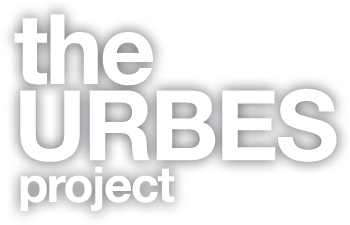Events
URBES will continuously present factsheets, published papers and news items throughout the project, which will all be presented under Information and communication. Here we present future and past URBES events.
Biodiversity and ecosystems for sustainable towns and cities
18 April 2013 | News story
During the 7th European Conference on Sustainable Cities and Towns, in Geneva, IUCN facilitated the side event “Management of biodiversity and ecosystems, a new way of looking at sustainable cities”.
Keynote speakers from various European cities and the European Commission highlighted examples that show how investing in nature can contribute to sustainable urban growth.
Hosted by IUCN member organization ICLEI – Local Governments for Sustainability, this event addressed the potential of nature based solutions for economic development in urbanized environments in Europe. Ms. Catherine Lambelet, Florist at the Geneva Botanical Garden and Conservatory highlights the importance of green spaces in urban areas as a privileged place for citizens to learn about plant diversity in their home region and creates better understanding of the values of biodiversity for urban life. Without understanding, there will be no protection of rare species. With rapid urban densification, it is essential that biodiversity is taken into account at an early stage of urban planning and decision-making.
Mr. Luis Orive, Director General for Strategic Environment and Nature of the city of Vitoria-Gasteiz shared the experiences of the 2012 Green Capital of Europe. This Spanish city presents an excellent model for greening the urban environment. The city’s ‘green belt’ around the city, which was partially reclaimed from degraded areas such as a former municipal airport, offers many values to citizens and wildlife, such as recreation, air and water regulation, flood prevention and educational opportunities. Vitoria – Gasteiz turns its slogan “Where green is capital” truly into reality.
As representative of the Barcelona City Council, Mr. Toni Pujol, Environment Officer, shared his views on the development of the city’s green infrastructure and biodiversity plan, which is unique in a compact city like Barcelona. A clear difference with the previous approach is that management of urban green spaces will now be integrated with biodiversity planning. This offers new perspectives for increasing the space for nature within the city, as it can provide important ecosystem services contributing to the citizens.
The Mayor of Grandt Synthe, Mr. Damien Carême, explained how in a small town of 22,000 inhabitants near the harbor of Dunkirk in France, everyday life is connected with the natural environment and local ecosystems. As the city became highly industrialized and unattractive for its citizens due to pollution, a wide range of environmental actions and initiatives, such a planting trees and promoting species diversity have resulted in the French Capital of Biodiversity Award in 2010. The citizens give nature a prominent place in everyday life.
The European Commission is currently shaping its strategy on green infrastructure and Mr. Marco Fritz, Policy Officer at the Directorate General for the Environment emphasized the role of cities in implementing this strategy. Multiple studies have shown that nature can deliver benefits to people and can provide economic gain. It is essential to map ecosystem services and their monetary and non-monetary values at various scales and to exchange examples and best practices across countries. This will contribute to convince all relevant actors about the incentives for investing in natural ecosystems.
Ms. Chantal van Ham of the IUCN - International Union for Conservation of Nature concluded that this exchange of knowledge and experiences from various European cities underlines the the great potential for nature to be at the centre of the green urban economy. Our natural environment is the foundation of sustainable urban development and integrating biodiversity and ecosystem services in urban planning can offer a valuable response to the economic challenges Europe is facing.
Sharing best practices for biodiversity conservation in European urban areas: Professor Thomas Elmqvist participated in this side-event to the 11th Meeting of the Parties to the Convention on Biological Diversity (CBD COP11) and explained that urbanization in Europe is slowing down but that the distance between cities and protected areas across the globe is shrinking, which means that there is an increasing need to find ways of cities and protected natural areas to co-exist.
URBES was represented at the ICLEI Resilient Cities 2012 Panel discussion on green infrastructure and ecosystem services for resilient cities of the future, May 2012.
The workshop Natural Solutions for Urban Areas in Europe at the European Parliament, November 14, 2012, had Professor Dagmar Haase participating, presenting URBES. The workshop sought to raise awareness of the value of biodiversity and nature-based solutions, to help European cities cope with the challenges that they are experiencing in the face of the on-going rapid urbanization.
New from Events
An URBES symposium will be held at the SURE conference (Society for Urban Ecology) in Berlin, June 25-27.
The Society will also arrange the SURE Summer School 2013 in Shanghai, Nov 26 - Dec 3, with the topic Urban Development and Urban Ecosystem Services - European approaches and Shanghai experiences. Several of the URBES members will be present as tutors and participants.
The Ecosystem Services Partnership will have its 6th Annual International Conference, August 26-30, in Bali, Indonesia. Note that deadline for Special Symposium or Workshop proposals was March 1. For abstracts, the deadline is May 1. Read more here: http://www.espconference.org/ESP_Conference
The URBES consortium has been accepted to present an AMBIO Special Issue in 2014.
The second annual URBES meeting was hosted by our project partner the Technical University of Munich, Strategic Landscape Planning and Management, March 5-8 2013.


